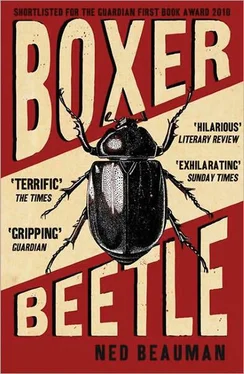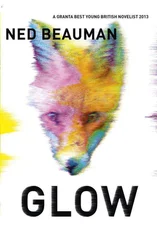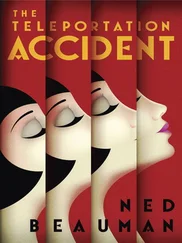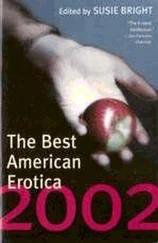Afterwards he made his way to the dressing room, and stood outside the door for a minute or two before he had the courage to knock. The interview with Sinner was not a success. ‘I’ve had enough of beetles now,’ he told the boy. ‘I want to study human beings.’ This wasn’t quite true. Whether or not Sinner complied with his request, Erskine knew that he would probably have to carry on herding insects as long as he lived. For one thing, his father, who funded his studies, would be unhappy at the abrupt switch from entomology to anthropobiology. But, more importantly, some of his planned eugenic experiments would require hundreds of bloodlines to be followed for hundreds of generations. That was ambitious enough with insects, but probably impossible with humans, unless you had a whole dynasty of scientists working under a whole dynasty of despots. In a truly enlightened society, of course, the two clans would soon fuse: scientists would be despots and despots would be scientists. At least with beetles it was easy enough to be both. Not long ago he’d read a book called If I Were a Dictator , by Julian Huxley, whom he’d once met at a cocktail party. Huxley argued that busy shopping streets should have their pavements replaced with moving pneumatic platforms and that sex should be taught in schools, but other parts of his argument were more creditable. ‘The true-born Briton is rather proud of his reluctance to become a governmental “guinea-pig”,’ he wrote. ‘In reality this attitude is the product of an irrational and suspicious stupidity on his part, and of unscientific unplanned action on the part of the State; an atmosphere should and could be created in which to be selected as an experimental object and to serve in the application of science to social progress would be regarded as an honour.’
But this atmosphere was missing from Sinner’s dressing room, and Erskine left Premierland almost in tears. He had to trudge a long way down Commercial Road, jostled by passers-by, before he could find a cab. He didn’t want to ask the driver to take him to the Caravan, so he got out at the north end of Endell Street and walked up and down it for nearly twenty minutes before he realised that the club was tucked below street level. He stood at the top of the steps gathering his resolve, as he had outside the dressing room, and then started down. And that was when, as in a dream, Sinner came out through the door.
‘What the fuck do you think you’re doing here?’ said the boxer. ‘You followed me.’
Actually, for a delirious instant Erskine had assumed the reverse — that Sinner had followed Erskine to Covent Garden to tell him that he’d changed his mind. But that didn’t make sense. ‘What?’ he said, noticing that there was another boy with Sinner. A fellow boxer?
‘You followed me here. Probably going to kidnap me. Posh cunt.’
How else could Erskine explain himself? He could be fairly confident that Sinner wouldn’t have heard of Pitt-Rivers’ Evolutionary Consciousness, or understand that the Caravan was the perfect place to test that theory. Also, it looked as though he might get hit if he tried to argue. So he said, ‘That’s right. I followed you here. I’m sorry.’ And got hit anyway. He had found it strangely challenging to lie to the boy: there was something in his gaze that flayed you bare. He recalled that boxers had to be keen empiricists of human behaviour, so that they could always predict their opponent’s next move. Erskine liked to think of himself as a keen empiricist of human behaviour, but the truth was he found it a rather confounding subject, like algebra.
One or two people laughed at him as he hurried down Endell Street. He was suddenly unbearably hot in the carapace of his father’s overcoat. Crossing Long Acre, he slowed down, and went into a pub on Bow Street near the Royal Opera House to buy a brandy. He didn’t want to go back to his club yet. From the bar he could see out through the window, and a minute later, to his surprise, he caught sight of Sinner and the other boy going past. Even to watch Sinner walk was fascinating: he had a sort of swaggering bounce as if he were still in the ring. Erskine gulped down his drink.
Outside, he pursued the two of them from a distance. They went a long way down the Strand, then turned left into the little mess of short streets beside Charing Cross Station, where he knew he couldn’t help being seen if they happened to turn their heads. But neither did, and he was able to watch as Sinner led the boy into the Hotel de Paris. The narrow building was a scuffed, brown-toothed interloper in a relatively smart street. Erskine stood on the corner for ten minutes smoking a cigarette and mentally reviewing all that he knew about perverts in case he should be obliged to pass for one, then went inside, where a fat man in braces sat behind a counter reading a paperback detective novel and breathing heavily. He asked for a single room for the night and was given a key in return for ten shillings.
‘Expecting any callers later?’ the man said.
‘Definitely not.’
Erskine did not even look at the room number on the key. Instead, he walked the shabby corridors of the Hotel de Paris, wondering which room was Sinner’s, hearing nothing but the creak of his own footsteps and the intestinal groans of the hot water pipes. (Why was he here?) When he’d paced all three floors he chose a room at random, 39, knelt down, and held his ear to the door. Inside he could hear grunting and panting. Could this be Sinner and the other boy, he wondered, his stomach hollow? But when he tried 38, he heard the same; from 37, silence; and from 36, grunting again.
‘What on earth are you up to?’
Erskine looked up. A man who wore eyeshadow, rouge and no shirt was coming out of the communal lavatory. He had his hands on his hips and he spoke in a high-pitched theatrical voice that Erskine found physically nauseating.
‘Nothing,’ Erskine replied, and got to his feet.
‘I’ll be free in about an hour if you’re looking for a bit of—’
‘No!’ Erskine shouted, and, once again, fled. That night, noosed in his sheets at the United Universities Club, he dreamed of two rabbits, one white and one black, strapped together on a surgical table and cut open so that each one’s carotid artery gushed into the other one’s heart. When he awoke, choking on blood that wasn’t there, he wondered about the symbolism — he’d read Freud as well as Marx — until he remembered that this image was not a product of his unconscious, but rather a real experiment performed in 1870 by the great Francis Galton, inventor of the word ‘eugenics’, to disprove his cousin Charles Darwin’s theory of pangenesis. ‘It was astonishing to see how quickly the rabbits recovered after the effects of the anaesthetic had passed away,’ Galton had written. ‘It often happened that their spirits and sexual aptitude were in no way dashed by an operation which, only a few minutes before, had changed nearly one half of the blood that was in their bodies.’ Erskine got up and took a very long bath.
Only six or seven hundred people in the world have trimethylaminuria. Because of a misprint in our genes our bodies are unable to break down trimethylamine, the chemical that gives the stink to both rotting fish and bacterial infections of the vagina. (Hence all those tiresome old jokes about a blind man wandering into a fish-market and taking it for a brothel, or vice versa, which could just as well be made about a blind man wandering into a convention of trimethylaminuria sufferers, although in truth if such a convention were ever to take place then it would no doubt be identified as a terrorist biological weapon and fighter planes would be scrambled at once.) Trimethylamine leaks out in our sweat and our urine and our saliva, curdling the air around us. There is no cure. Most of us will never have consensual sex, and many of us commit suicide by the time we are thirty. I used to spend time on trimethylaminuria support group messageboards, the closest thing we have to the aforementioned convention, but I found the tone too depressing, in contrast to Nazi memorabilia collecting messageboards, which are brisk with shared endeavour and friendly competition.
Читать дальше











